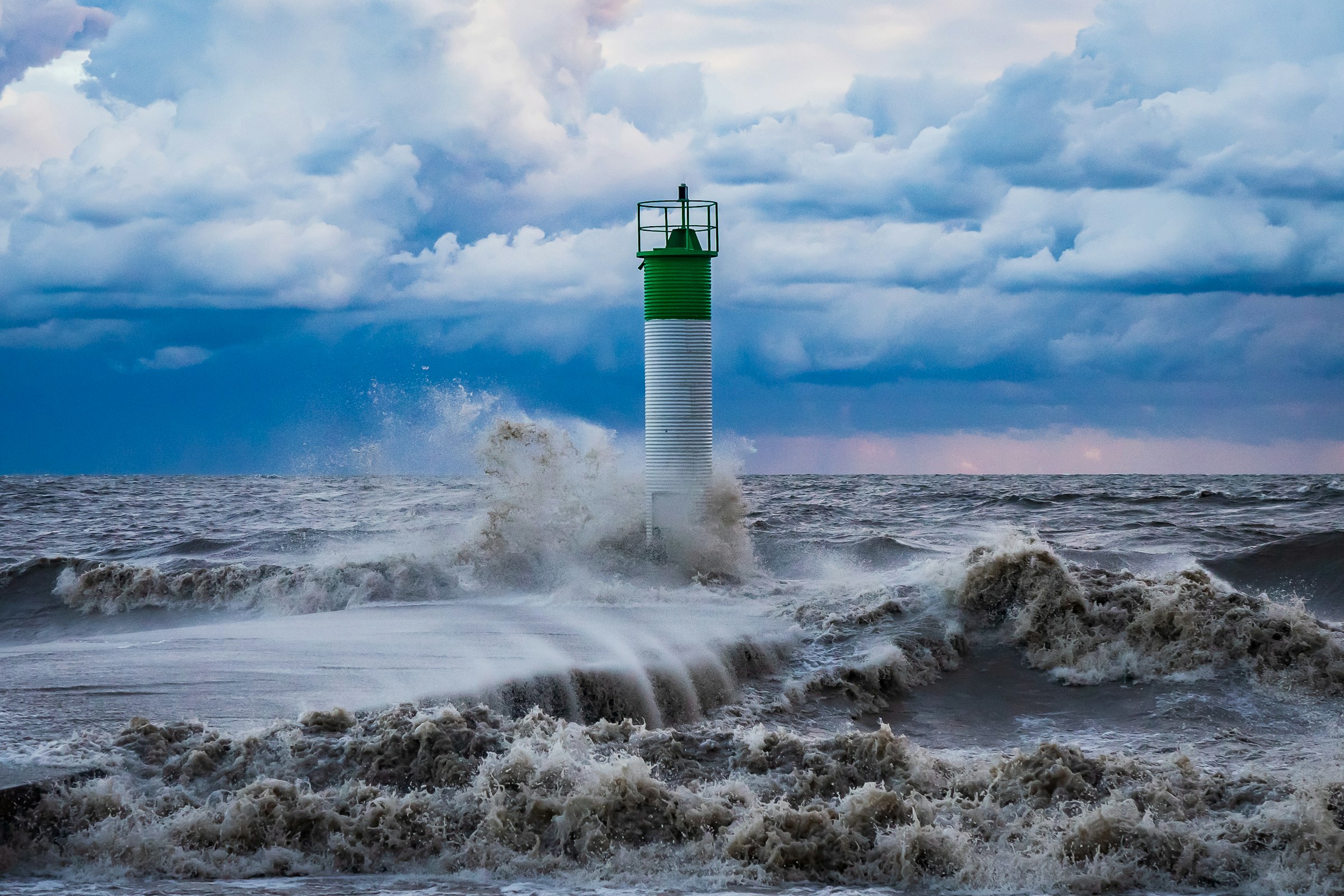Since its inauguration in 2017, when the United Nations General Assembly proclaimed the United Nations Decade of Ocean Science for Sustainable Development (2021-2030), the Ocean Decade Conference has played an increasingly important role in coordinating collective commitments to safeguarding marine environments under the banner of “the science we need for the ocean we want”, and by bringing together scientists, policymakers, activists, and stakeholders from across the globe.
The guiding mission of the Ocean Decade is to support efforts to reverse the cycle of decline in ocean health by ensuring that all stakeholders unite in bringing ocean science to the fore and support countries in creating improved conditions for sustainable development of the Ocean.
This is especially important as “Life below water” continues to be the least funded of the UN’s 17 Sustainable Development Goals. A trend which scientists hope to reverse through initiatives linked to Ocean Decade that in turn call for increased investment in ocean science and greater recognition for the value of the blue economy – defined by the UN as the sustainable use of the ocean’s resources for economic growth, improved livelihoods and jobs.
The latest edition, 2024 Ocean Decade Conference held in Barcelona, Spain, from April 10 to 12 and co-organized by UNESCO’s Intergovernmental Oceanographic Commission (IOC/UNESCO), brought together over 1,500 participants from 124 countries and over 3,000 online viewers, that contributed to the creation of the Barcelona Statement, a document that identifies priority areas for action in the coming years.
The #OceanDecade is the world's largest ocean science movement. Based on 10 Challenges, it aims to transform the way that ocean science and knowledge is generated.
Learn more about how each Challenge contributes to safeguarding our ocean: https://t.co/YvpJlGsmqO#EarthDay pic.twitter.com/mXzxvLaWym
— UN Ocean Decade (@UNOceanDecade) April 22, 2024
The Barcelona statement
From climate change and ocean acidification to marine pollution and overfishing, the Ocean Decade conference in Barcelona once again put the spotlight on the key issues threatening the health and resilience of marine ecosystems.
In this regard the Barcelona Statement provides a crucial roadmap for the coming years by identifying the areas where ocean solutions must be accelerated.
The three main sets of priorities identified in the Statement, are: ocean knowledge and science generation to inform management decisions; improved infrastructure including for marine pollution monitoring and ocean observations; and cross-cutting issues such as co-designing initiatives and embracing all knowledge systems.
Within these priorities, geographical balance is also needed, not only in the implementation of the solutions themselves so that all people across the world benefit, but also in capacity building where it is most lacking and listening to a plurality of forms of local knowledge. An approach that is exemplified by the launch of new funding opportunities for Africa through the Belmont Forum, and for Small Island Developing States through the Marine Institute, Ireland.
Participants in Barcelona came from all over the world, reflecting the diverse nature of issues related to the sustainable development and interconnectivity of our oceans.
Throughout the conference India led calls for establishing a region-specific ocean observation center. Earth Sciences Secretary M. Ravichandran, advocated for people-centered early warning systems for multiple hazards, the use of traditional and local knowledge involving local communities, NGOs, and industries to enhance ocean literacy and related programs, as well as the need for designing regional projects, such as ocean forecasting, tailored to user communities’ needs.
Anthony Akpan, President of Pan African Vision for the Environment also called for, “Increased investment in capacity development, sharing, and coordination with a focus on SIDS, Least Developed Countries, and other under-represented groups including Early Career Ocean Professionals,” once again highlighting the need for geographical and socioeconomic balance in the implementation and development of solutions.
🌊Spotlight on Ocean Decade Booklet 💫🎉
Author- Anthony Akpan highlights what the booklet will do to promote understanding of the #OceanDecade challenges in Africa.
Stay tuned for details and download your copy now in the link below.
Read more: https://t.co/De19llOYh5 pic.twitter.com/owGFzudWrn
— Western Indian Ocean Early Career Scientist Net (@WIOECSN) January 23, 2023
An excellent example of a successful case in point is that of the Seychelles. The President of the Republic of Seychelles, Wavel Ramkalawan highlighted not only the issues faced by his country but also the solutions that they have helped foster with the help of the international community in his opening remarks at the conference: “We have also made notable progress in ocean science research. We have set-up our own Blue Economy Research Institute. We have more recently collaborated with renowned research entities, such as the Monaco Explorations and the Ocean X. We are also integrating ocean literacy and sustainable ocean management in our curriculum. Equally important to note is that, we have ratified the BBNJ treaty, making us the first African state to do so and the third worldwide.”
Understanding the ocean
A key area of the Ocean Decade is increasing understanding and knowledge sharing about the ocean and our impact on it. Ocean literacy, which is commonly defined as an understanding of the ocean’s influence on you and your influence on the ocean, seeks to bridge this gap through a variety of initiatives including transformative storytelling to connect citizens with ocean knowledge and drive action to restore, protect, and live better with the ocean.
To this end UNESCO’s Intergovernmental Oceanographic Commission (IOC/UNESCO) selected for its new Group of Experts on Ocean Literacy 20 renowned professionals from diverse and relevant disciplines and interested parties, reflecting the multi-stakeholder nature of ocean literacy and taking into consideration geographical and gender balance.
In an interview with UN News, Vinicius Grunberg Lindoso, Communications Officer at UNESCO’S IOC, described how people can contribute to revitalize oceans and “empower ourselves as individuals” which is made possible through the initiative Generation Ocean as it brings the “Ocean Decade to citizens and interested member of society showing them that they can be a gamechanger,” and that ocean issues are not intangible ones that are only to de dealt with in the upper echelons of policymaking.
Francesca Santoro, who is in charge of ocean literacy at UNESCO’s Intergovernmental Oceanographic Commission (IOC), also explains when quoted on UN.org: “It is really about empowering people with tools, to better use that ocean knowledge to become more responsible and able to take decisions that involve ocean resources, in a more knowledgeable way. It is really about being capable of understanding how much the oceans influence our life and how much we can influence the ocean in both positive and negative ways.”
The President of the Republic of Seychelles, Mr Wavel Ramkalawan this morning addressed the 2024 United Nations Ocean Decade Conference High-Level Segment in Barcelona, Spain.
Read the full Keynote Speech of the President: https://t.co/oK4qDlcQNE pic.twitter.com/uznJ1OgFwn
— SeychellesStateHouse (@StateHouseSey) April 10, 2024
The commitment of Seychelles towards ocean literacy is a further example of how the island nation is advancing Ocean Decade Goals. President Ramkalawan talked about how ocean literacy and sustainable ocean management have been integrated into the national school curriculum:
“We need to shape the minds of the next generation as early as possible if we want to promote research and development to ensure that they understand and appreciate not only what the ocean can do for them, but also what they can do for the ocean […] by investing in science and research, implementing effective policies, and promoting sustainable practices, we will ensure that our oceans remain a thriving and diverse ecosystem that supports both human and ocean well-being.”






